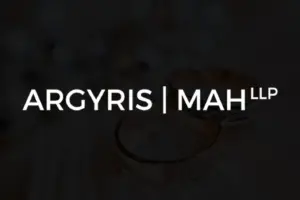I Found Out That My Ex Failed To Disclose An Asset During Our Divorce. Now What?

If you are in the middle of a divorce and suspect that your soon-to-be ex is hiding assets from you, then it might be a good idea to hire a private investigator or a forensic accountant to get the bottom of things. It is much easier (and much more cost effective) to deal with the issue of hidden assets before the divorce is finalized, than it is to deal with it after. However, if your ex is successful in hiding their assets during the divorce and you don’t find out until after the divorce is finalized, then you can file a motion in the court where your divorce was filed to reopen the case.
At divorce, both spouses are required to disclose all of their assets regardless of whether they are separate property or community property. California is a community property state, which generally means that all debt or earnings made during the marriage belong to both spouses equally and any property or debt acquired before the marriage is separate property. While there are some exceptions to the general rule, such as if one spouse receives an inheritance during the marriage which is seen as that spouse’s separate property, most assets received during the marriage are seen as belonging to the community.
If your ex failed to disclose an asset before the divorce was finalized, the remedies you are entitled to, in part, depend on whether your ex hid the asset intentionally, with a conscious disregard for your rights, or with the purpose of subjecting you to a cruel or unjust hardship.[1] During marriage and at divorce, spouses owe each other a fiduciary duty. This duty includes the obligation to make full disclosure to the other spouse of all material facts and information regarding all assets in which the community has or may have an interest and debts for which the community is or may be liable, to provide equal access to all information regarding those assets and debts, and the duty to not take unfair advantage of one’s spouse.[2] So if your ex hides an asset during the divorce, they have breached their fiduciary duty.
If your ex hid an asset but there isn’t much evidence that they did so intentionally, with a conscious disregard for your rights, or with the purpose of subjecting you to a cruel or unjust hardship, then you may be entitled to 50 percent of the value of the hidden asset in addition to your attorney’s fees and court costs, depending on whether the asset would have been deemed community or separate property during the divorce. However, if there is “clear and convincing evidence” that your ex hid an asset (specifically an asset your ex knew the court would likely deem community property) with the intention to do so, with a conscious disregard for your rights, or with the purpose of subjecting you to a cruel or unjust hardship, then you are likely entitled to an award of 100 percent of the value of the hidden asset. The court also has the discretion to order your ex to pay your attorney’s fees and costs in addition to awarding you 100 percent of the hidden asset.[3]
At this point, you may be asking yourself: “Then what constitutes clear and convincing evidence in the types of cases where 100 percent of the hidden asset was awarded?” Well, there are numerous cases illustrating this, but the most interesting case occurred back in the 90’s. During the divorce of Thomas and Denise Rossi, Denise filed for divorce just 11 days after winning $1.3 million in the lottery and failed to disclose her lottery winning before the divorce was finalized.[4] Two years after the divorce, Thomas found out about Denise’s lottery winnings.[5] In the end, the court found that Denise had intentionally consulted with the Lottery Commission as to how to deprive Thomas of a share of the prize, she had used her mother’s address for all communications with the lottery, she failed to disclose the winnings in the dissolution proceedings, and under those circumstances Thomas was entitled to 100 percent of Denise’s lottery winnings.
Aside from getting 50-100 percent of the hidden asset on top of possibly being awarded your attorney’s fees and costs, you can request that the court impose sanctions on your ex for failing to disclose the hidden asset(s) during the divorce proceedings.[6] (A sanction is a punishment that requires a party to pay money for failing to do something that is required by law.) If you can’t prove that your ex’s failure to disclose an asset before your divorce was finalized, such as if they didn’t disclose an item of separate property that you had no claim to, the court still has the power to order your ex to pay sanctions because California law doesn’t require you to incur an actual injury as a result of your ex’s failure to disclose. All that it requires is that they fail to disclose an asset or debt as required by the family code—that’s it.[7]
If you are worried that your ex didn’t disclose an asset or debt during your divorce, or if you are just starting your divorce and believe that your spouse may be hiding assets, you should contact an attorney to understand what your rights are. In reality, it is often very difficult to find suspected hidden assets. However, at Argyris Mah, LLP, our experienced and skilled attorneys will help guide you through the process and come up with a plan tailored to your individual situation and needs. Contact our office at 408-214-6366 or email us at info@argyrismah.com for a initial consultation.
- Civil Code Section 3294.
- Family Code Sections 1100 and 721.
- Family Code Section 1101.
- In re Marriage of Rossi (2001) 90 Cal.App.4th 34.
- https://www.marketwatch.com/story/my-deadbeat-husband-didnt-work-for-8-years-should-i-spend-my-money-before-we-divorce-2016-08-18
- Family Code Section 2107(c).
- In re Marriage of Feldman (2007) 153 Cal.App.4th 1470, 1479-80.